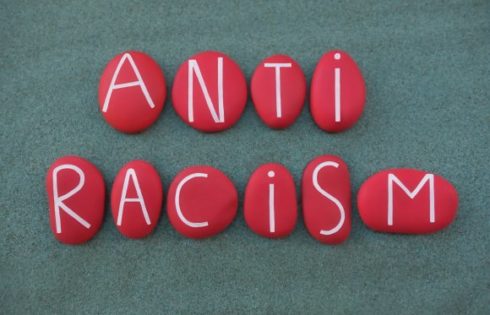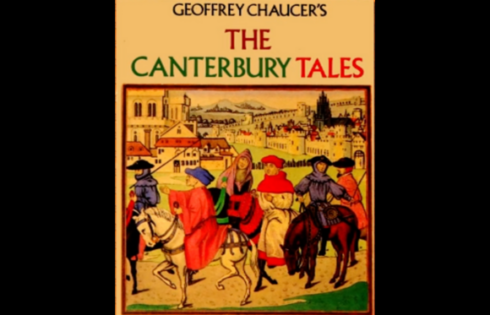
War is peace, freedom is slavery, and disinviting a controversial speaker is academic freedom.
South Africa’s University of Cape Town is drawing international condemnation from freedom-of-expression groups for yanking back a speaking invitation to Flemming Rose, the former editor of the Danish newspaper that published cartoons of the Prophet Mohammed in 2005.
In a July 12 letter to the university’s Academic Freedom Committee, which organizes its annual lecture on academic freedom, Vice Chancellor Max Price says UCT must nix Rose as the lecture speaker.
MORE: Journalism dean says free speech doesn’t protect images of Mohammad
It apparently waited more than a year to pull the rug out from under Rose, whom the committee invited to give the August 2016 lecture in March 2015.
Listen to Flemming Rose's #FriedmanPrize acceptance speech… https://t.co/0qr9jINrie pic.twitter.com/9McYJeEoDE
— Cato Institute (@CatoInstitute) June 1, 2016
Though Price said the administration “agonised over withdrawing the invitation, and we do so with great reluctance and regret,” he implied that Rose would violate the South African constitution if he spoke to the university:
Indeed, in terms of our Constitution (as in all modern democratic constitutions), every right is subject to limitation by law of general application …
[Quoting the constitution,] “The right… does not extend to – (a) propaganda for war; (b) incitement of imminent violence; or (c) advocacy of hatred that is based on race, ethnicity, gender or religion, and that constitutes incitement to cause harm.”
As the Index on Censorship notes, “The implication of this reference is that Rose’s speech might amount in some way to one of these three. This is a dangerous and damaging route for an academic institution to take.”
South Africa: Cancellation of lecture makes a mockery of #UCT’s supposed defence of free speech and academic freedom https://t.co/lmMm0wMUOd
— Index on Censorship (@IndexCensorship) July 22, 2016
It’s simply too dangerous to let Rose on campus, Price says, because he is
regarded by many around the world as right wing, Islamophobic, someone whose statements have been deliberately provocative, insulting and possibly amount to hate speech, and an editor of a publication that many believe took a bigoted view of freedom of expression.
Price says the administration also decided against changing the lecture to a debate with Rose because “we believe there is a real danger that among those offended by the cartoons, an element may resort to violence,” even if Rose’s views are challenged from the stage.
MORE: Editor who ran Mohammed cartoons says identity politics is eroding free speech
Letting Rose speak could even “retard rather than advance academic freedom,” Price claims in apparent earnestness, because UTC’s students are too delicate:
Our campuses have become charged spaces, in which ideological and social fault-lines have become intensely politicised, sometimes violently so. We are committed to weathering these storms in ways that acknowledge and protect the need for safe spaces to confront and debate such matters. We know that many within our universities don’t feel safe to engage, which undermines the spirit of mutual tolerance and understanding.
This is a deeply worrying situation which all adherents of academic freedom should find disconcerting, and ultimately unacceptable. Academic freedom cannot survive, let alone flourish, in such an atmosphere. But will progress on this issue be advanced by inviting someone who represents a provocatively – potentially violently – divisive view to make the case for a considered version of academic freedom that is avowedly sensitive to the concurrent rights to dignity and freedom from harm?
Had the honor of meeting Milton Friedman Prize for Advancing Liberty winner Flemming Rose https://t.co/zDAPR39p4q pic.twitter.com/jbJn2mNsdF
— Mark Davis (@MarkCDavis7) June 6, 2016
The Academic Freedom Committee was much more succinct than Price, responding that Rose had already agreed to a panel discussion with critics so that “disagreements related to tolerance and freedom of expression could be aired.” It rebutted Price’s claim that Rose could violate the constitution, saying academic freedom had been “severely compromised” by the disinvitation.
It will not choose another speaker to replace him, and the official log of annual lectures “will carry an appropriate entry for 2016 reflecting this development.”
MORE: Professors asked to remove Mohammad after complaints of blasphemy
Rose himself gave a point-by-point rebuttal to the “disgraceful” explanation from Price, accusing him of encouraging the heckler’s veto and of generally getting his facts wrong, including the claim that Rose favors “selective blasphemy”:
What I oppose is the kind of “I am in favor of free speech, but”-position that Mr. Price provides a classic example of. His approach to free speech would make it possible to ban any speech.
The Index on Censorship called the administration’s decision “a clear example of a type of ‘assassin’s veto’ in which those who argue they are offended by the speech of others can use the threat of violence to silence those with whom they disagree.”
It implied that Price had gone back on his word: Just last year the vice chancellor signed a letter by the London-based group defending academic freedom worldwide.
https://www.indexoncensorship.org/2015/06/academic-freedom-open-letter/
Read Price’s letter, the committee’s response, Rose’s response and the Index on Censorship post.
h/t Greg Lukianoff
MORE: Jihad expert at Texas shooting warned students of ISIS in America
Like The College Fix on Facebook / Follow us on Twitter
IMAGE: pathdoc/Shutterstock





Please join the conversation about our stories on Facebook, Twitter, Instagram, Reddit, MeWe, Rumble, Gab, Minds and Gettr.